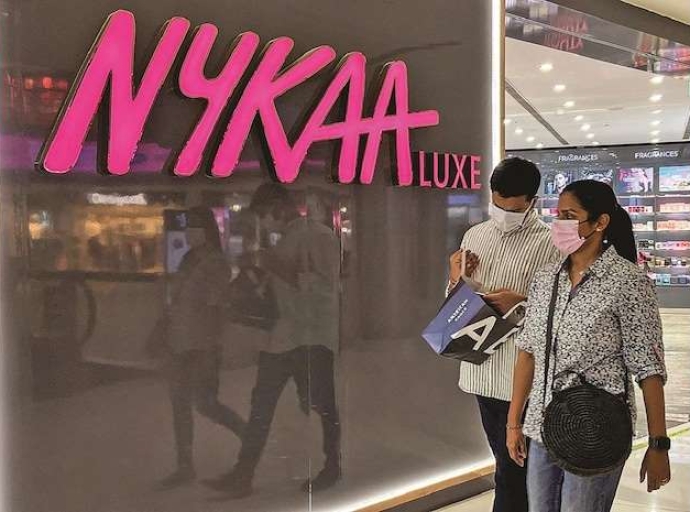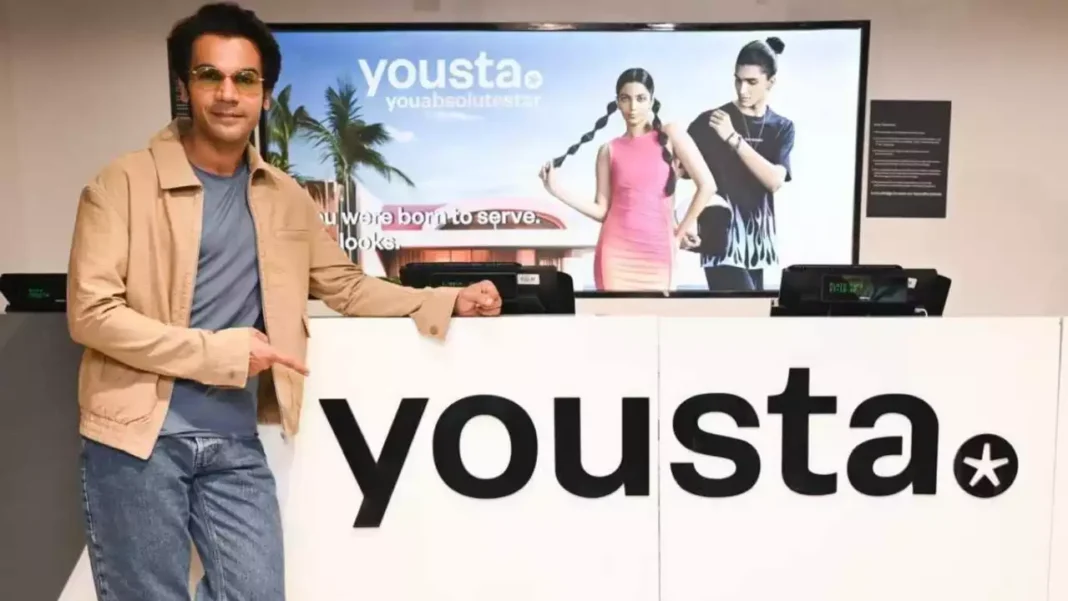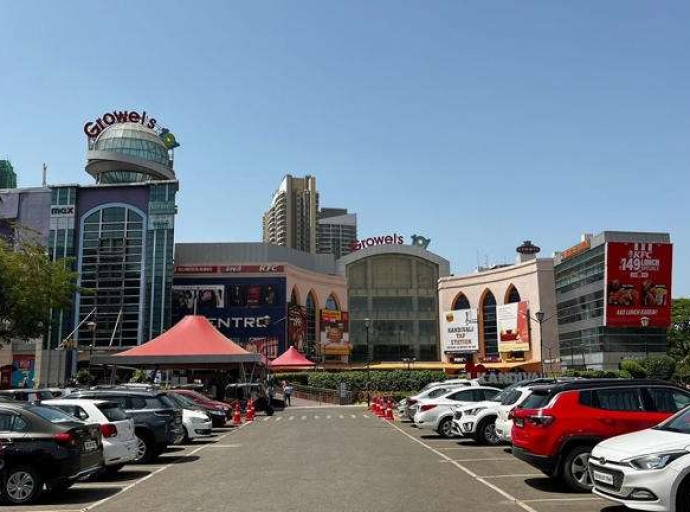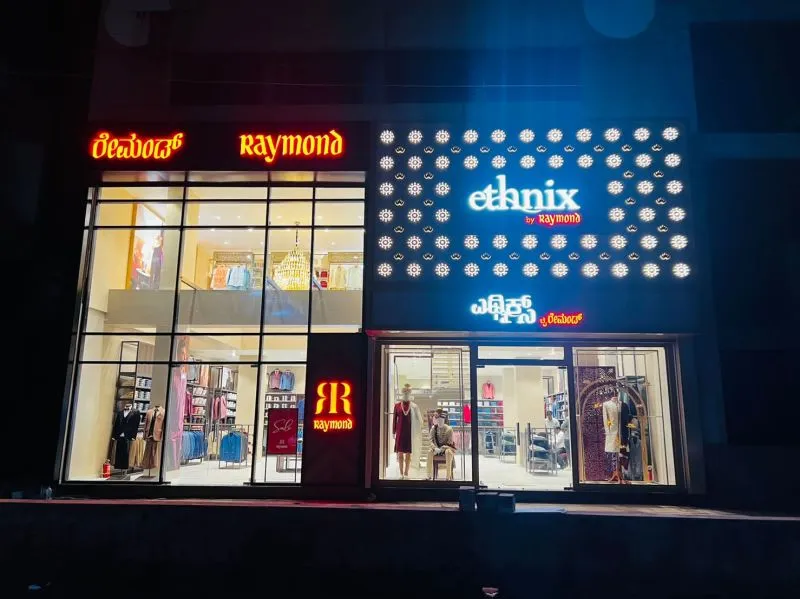Global fashion accessories brand, Accessorize London is set to expand its footprint in the Indian travel retail market. Known for its trendy bags, jewelry, hair accessories, and kids' items, the brand aims to capitalise on India's booming tourism industry.
Outlining the brand’s expansion strategy, Kumar Saurabh, CEO, Planet Retail Holdings, says, the brand plans to meet the rising demand for quality fashion accessories by opening new stores in key transit areas such as Pune and Hyderabad airports.
Prominent among the company’s plans is to launch around 80 stores in the next five years with an average of 10-15 stores annually. Accessorize London also plans to boost its ecommerce presence.
Having built a robust presence in travel retail, particularly in India, over the past 17 years, the brand currently operates stores in major airports such as Delhi Indira Gandhi International, Hyderabad Rajiv Gandhi International, and Bengaluru Kempegowda International.
The extensive experience garnered by Accessorize London enables it to understand all consumer preferences and upcoming trends in the travel retail sector thoroughly. This further enables the brand to stay ahead of market changes and cater to the needs of both international and domestic travelers. he notes.
Besides its popular trendy bags, Accessorize London offers a variety of travel essentials, including beach bags, beaded jewelry, utility items such as pouches and card holders, sunglasses, and hats.
The brand aims to establish itself as one of the most preferred brands for essential and fashionable accessories in India. It aims to be the go-to destination for quality, style, and innovative fashion pieces, catering to a wide range of customer preferences and needs, adds Saurabh.
All Stories
The consolidated net profit of Nykaa operator FSN E-Commerce Ventures increased by 187 per cent to Rs 6.9 crore during Q4 FY24 ended March 2024,
This was against Rs 2.4 crore net profit recorded in the corresponding quarter last year.
The company’s revenue from operations during the quarter rose by 28 per cent Y-o-Y to to Rs 1,668 crore. Revenue from the beauty and personal care (BPC) business grew by 24 per cent Y-o-Y to Rs 1,389 crore. Its gross merchandise value (GMV) for the segment increased by 30 per cent Y-o-Y to Rs 2,120 crore. FSN’s net sales value (NSV) for the BPC business jumped by 24 per cent Y-o-Y to Rs 1,271 crore.
Meanwhile, revenue from the fashion business rose by 27 per cent Y-o-Y To Rs 1,334 crore in the March quarter, with GMV for the segment growing 27 per cent Y-o-Y to Rs 842 crore.
Revenue from other businesses grew by 90 per cent Y-o-Y to Rs 146 crore, while GMV for the segment increased 68 per cent Y-o-Y to Rs 255 crore.
The company’s board plans to invest Rs 20 crore in its wholly owned subsidiary, FSN International, on a rights basis. Further, FSN International plans to invest approximately $1.9 million in one of its overseas arms.
Lalit Agarwal, Founder & Managing Director, V-Mart Retail, says, the company expects to grow by 18-19 per cent this year. He acknowledges that the company is still striving to return to pre-COVID same-store sales levels. It is taking strategic steps to enhance its offerings with the best fashion, products, and prices. V-Mart is also focusing on reducing the average selling price and introducing products appealing to Gen Z consumers.
In the retail sector, value has become a significant driver of fashion, with increasing consumer movement from unorganised to organised retail. This shift has led to better footfalls and improved sales compared to previous quarters. Smaller towns are experiencing resurgence in consumer demand, partly fueled by the economic boost from recent elections. Festivals like Eid and Poila Baisakh contributed to positive performance in the first month of the current quarter. However, a decline in wedding-related sales during May and June has been observed, balanced by an uptick in holiday and travel-related consumer spending.
For FY25, Agarwal aims to achieve continued business growth. Efforts to improve internal capabilities, provide top fashion and products at competitive prices, and launch Gen Z-targeted styles are beginning to yield results, he says. V-Mart achieved 6 per cent same-store sales growth (SSSG) in the last quarter and aims to sustain or surpass this growth, targeting overall revenue growth of 18-19 per cent this year.
Despite reporting a loss in Q4, V-Mart’s performance was in line with expectations. The company's online platform, Limeroad, has been a significant area of focus, with efforts underway to reduce its financial burn and integrate it more effectively with V-Mart’s offline operations. No new acquisitions are planned, indicates Agarwal. The company’s current priority is the successful integration and scale-up of Limeroad to complement V-Mart's physical retail presence, he adds.
A premium brand specialising in mother and baby care products, Huny Huny has expanded its retail footprint with the opening of a new store at Koramangala in Bengaluru. Iaugurated by actor Tejaswini Prakash, the store features a wide array of baby products as well as exclusive maternity clothing.
Huny Huny has been strategically expanding its presence in Tier I cities across India and has announced plans to open a new store in Mumbai soon. Vishal Mittal, Founder, Huny Huny, states, the new store offers a wide selection of premium baby products and clothes for effortless parenting.
Currently, Huny Huny has stores in Gurgaon, Noida, Jaipur, Hyderabad, Ahmedabad, and Pune, along with a robust online presence nationwide.
The Indian e-commerce landscape is witnessing a significant shift in consumer behavior, with shoppers becoming more accepting of platform fees levied by online retailers. This trend marks a move away from the earlier focus on deep discounts towards a more discerning approach to online purchases. The recent introduction of fees by major players like Myntra, Zomato, and Swiggy, signifies a maturing market and a focus on sustainable business practices.
A quiet acceptance of platform fees
For years, Indian e-commerce thrived on a strategy of heavy discounts and freebies to attract customers. This approach, while successful in driving adoption, resulted in razor-thin margins for companies. With funding drying up, the focus has shifted towards profitability, leading to the introduction of platform fees.
Ecommerce platform Myntra recently increased its platform fee by a third to Rs 20 per order, and unlike a few years ago, there wasn't a social media backlash. This quiet acceptance suggests a maturing consumer base, prioritizing factors beyond just the lowest price. This trend extends beyond Myntra. Platforms like Nykaa Fashion charges Rs 29 per order, while food delivery giants Swiggy and Zomato have introduced Rs 3-4 platform fees in addition to delivery charges. Notably, Amazon, Flipkart, and Reliance's Ajio haven't implemented such fees yet.
Focus on unit economics and profitability
The acceptance of platform fees benefits e-commerce companies by allowing them to focus on unit economics - the cost of selling a single product. Previously, companies relied heavily on discounts and promotional offers to attract customers, hindering profitability. With funding drying up, a shift towards sustainable business models has become crucial.
For online food delivery platforms, a small platform fee can significantly improve their financial performance. As Karan Taurani of Elara Capital points out, a Rs1 platform fee could potentially improve EBITDA (earnings before interest, tax, depreciation, and amortization) by 5 per cent. This metric is a key measure of a company's operational health.
For example, Zomato's experience exemplifies the positive impact of platform fees. After implementing a platform fee in July 2023, the company reported improved margins and a consistent rise in the number of transacting customers. Myntra has also experimented with platform fees, starting with ₹10 and gradually increasing it to Rs 20. This demonstrates their confidence in a customer base that prioritizes convenience and a wider selection over minimal discounts.
Experts believe platform fees are here to stay, but companies will need to tread carefully. Satish Meena, an independent e-commerce analyst, suggests keeping fees within 3-5 per cent of the average order value to avoid deterring customers. Additionally, fees may be implemented strategically, with higher charges in urban areas with higher order values and lower fees in non-metro markets.
Maturing market and sustainable growth
The acceptance of platform fees signifies a maturing online market in India. As Ankur Bisen, from Technopak Advisors, points out, this is similar to other industries like telecom, where fees are being adjusted to ensure profitability. With established players like Zomato, Swiggy, and Myntra having a strong market presence, the focus is shifting towards sustainable growth through optimized pricing strategies. The era of unsustainable discount wars seems to be fading, paving the way for a more balanced and profitable e-commerce ecosystem in India.
Myntra, a leading Indian e-commerce platform for fashion, has emerged as a powerhouse through its strategic use of technology. Over the years, Myntra has leveraged tech to transform the shopping experience and achieve remarkable growth.
Tech at the core
Myntra's story began in 2007-2008, selling personalized gifts. Today, it's a Flipkart Group company, owned by Walmart Inc, and a preferred shopping destination. The secret to their success is: Technology.
Myntra isn't just an e-commerce platform; it's a tech company. They've developed solutions like MyFashionGPT and MyStylist to personalize the shopping experience and inspire fashion choices. Their Virtual Try-On feature has boosted product consideration, highlighting the power of tech in fashion.
Beyond apparel, beauty and personal care
Myntra understands the challenges of selling beauty products online, like trial and returns. To address this, they've created a unique shopping experience for beauty, personal care, and grooming (BPC) verticals. AI-powered tools like the Skin Analyzer personalize skincare recommendations and boost conversion rates. Social commerce and influencer collaborations through Myntra Minis further enhance brand visibility and engagement.
Building a loyal customer base
Myntra understands that customer loyalty is key. They've achieved this through:
Frictionless shopping: Myntra offers fast delivery (M-Express) and a hassle-free exchange policy, ensuring a smooth shopping experience.
Rewarding customers: Myntra's Supercoins system rewards loyal customers, encouraging repeat business.
Personalized experience: AI tailors the Myntra app to individual preferences, showcasing relevant products and trends. They even personalize search results based on past purchases and browsing behavior.
Tech drives results
Myntra's tech focus has yielded impressive results. During the 2023 festive season, they reached 60 million, Monthly Active Users (MAU). Features like Vernacular Search empower users to shop in their preferred languages. Myntra Minis, their short-form video platform, fosters user engagement and video-led discovery. Their ‘Spot it, get it’ feature allows users to find and track trends they see in real life.
Myntra's marketplace entity achieved EBITDA profitability in the last quarter of 2023. Their strong market position, customer base, brand partnerships, and tech-driven innovations have played a key role in this achievement. Beauty is a significant growth category, and Myntra plans to add new categories like home, decor, and luggage.
The future of Myntra
The growing online shopping population, especially in Tier-II, III cities, presents Myntra with exciting expansion opportunities. They plan to leverage cutting-edge technology to personalize product selection, provide seamless service, and offer a superior shopping experience from leading international brands to unique homegrown D2C offerings. Myntra's focus on bolstering beauty and premium segments within other categories positions them for continued success.
Myntra's story is a testament to the power of technology in e-commerce. By strategically using tech to personalize the shopping experience, cater to diverse needs, and build customer loyalty, Myntra has transformed itself into a dominant force in the Indian fashion market.
India's leading casualwear brand from the globally renowned United States Polo Association (USPA), US Polo Assn revolutionises retail experience by opening a new store in Indiranagar, Bengaluru. Spanning 4,168 sq. ft. across two floors, this new store engages customers with the brand's iconic story.
Emphasising its authentic connection to polo, the new retail space features modern décor and sport-inspired fashion and accessories, creating an immersive shopping experience. The store showcases the brand's authentic, modern, and sporty elements, with a special focus on fashion and style. A distinctive wall within the store captures the classic and cool spirit of polo. This new store is part of the brand's broader growth strategy, which includes brick-and-mortar expansion, omni-channel presence, e-commerce, and brand marketing through storytelling.
The store offers the complete range of US Polo Assn. products, including USPA Mainline, USPA Sport, Denim & Co, Womenswear, Footwear, Kidswear, Accessories, and Innerwear. Customers can find timeless favorites such as polo shirts, denims, shirts, chinos, and t-shirts. Notably, this store is the second in India to showcase the new SS’24 womenswear collection, previously available only online.
Amitabh Suri, CEO, US Polo Assn India, says, “more than just an expansion, the new store at Indiranagar is a unique experience for Bengaluru customers. It underscores the strength of US Polo Assn, a brand as legendary as the sport itself, and its commitment to Indian consumers.
Bengaluru's rapid growth as a market for USPA makes it an ideal location for more stores. One of the city's busiest neighborhoods, Indiranagar is perfect for catering to the evolving fashion preferences of Indian consumers, aligning with global trends.
Currently, US Polo Assn's retail footprint in India includes over 400 brand stores and more than 2000 shop-in-shops across 200 cities.
Arvind Fashions Ltd (AFL) reported a stellar fourth quarter, with net profit rising 123 per cent to Rs 24 crore compared to Rs 11 crore last year. Revenue also climbed 4 per cent to Rs 1,094 crore.
Despite a subdued market, AFL's focus on retail efficiency led to a healthy 4 per cent growth in Like-for-Like (LTL) sales and a 120 basis point improvement in full-year EBITDA margin.
Arvind Fashions CEO Shailesh Chaturvedi attributed the company's success to strong execution in FY24, which improved all key financial metrics. He expects continued growth by expanding brands through innovative retail formats and growing the store network to further improve margins.
For the full year, AFL's net profit reached Rs 56 crore on revenue of Rs 4,259 crore. The company boasts a leading fashion brand portfolio, including U.S. Polo Assn., Arrow, Tommy Hilfiger, Calvin Klein, and Flying Machine.
Reliance Retail's youth-focused fashion brand, Yousta, has launched its first store at Prayagraj in North India. The store was inaugurated by Bollywood actor Rajkumar Rao, who while exploring the store during the launch, highlighting Yousta's stylish fashion options. His presence emphasised Yousta’s commitment to providing trendy, budget-friendly clothing for fashion-conscious youth.
Since its inception in August 2023, Yousta has rapidly expanded across India, with stores in Maharashtra, Telangana, Chhattisgarh, Kerala, Tamil Nadu, Jharkhand, West Bengal, and now Uttar Pradesh. Yousta targets young shoppers with a wide range of outfits, unisex and character merchandise, and weekly fashion updates through its ‘Starring Now’ collection. All items are priced below Rs 999, with most under Rs 499.
The new Prayagraj store offers a modern, tech-enabled shopping environment, featuring self-checkout counters and charging stations for a seamless shopping experience. Yousta also emphasizes community engagement and sustainability. The store collaborates with local non-profit organizations, encouraging customers to donate old clothes as part of its commitment to community support and sustainability.
Mumbai's retail landscape is experiencing a transformation, with a contrasting performance between high streets and malls. While high streets are seeing resurgence, malls, particularly smaller ones, are struggling.
This is due to several factors.
High street advantage: Mumbai's vibrant high streets offer a unique experience with a mix of established local shops and trendy boutiques. This caters to a growing consumer preference for convenience and a sense of community.
Mall woes: The city has witnessed a significant rise in ‘ghost malls’ – those with high vacancy rates. This is due to oversaturation in the market and an inability to compete with the convenience and variety offered by online shopping. The rise of online shopping has impacted footfall in smaller malls, particularly those lacking a strong brand mix. However, Grade A malls with a strong tenant mix and curated experiences are still performing well. Mumbaikars seem to favor the convenience and curated experience offered by high streets.
Mumbai's retail quirks
Mumbai's consumers exhibit distinct shopping behaviour. Shoppers are value-conscious, seeking good deals and discounts. However, there's a strong brand loyalty for established names, both domestic and international. A seamless blend of online research and physical store visits is becoming the norm.
The recent ‘Think India Think Retail 2024’ report by Knight Frank India reveals traditionally well-known high streets like Linking Road, Colaba Causeway, and Fashion Street are thriving. While the evolving high streets are Bandra Kurla Complex (BKC), Grant Road among others,
The report also indicates a growing share of organized retail that of malls and large chain stores compared to traditional mom-and-pop shops. They are growing steadily, driven by brand consistency, wider product range, and convenience. Well-established Grade A malls with a strong brand mix continue to thrive. However, high streets might still have a higher proportion of traditional stores due to their affordability.
Fashion reigns supreme
Fashion and apparel retail dominate Mumbai's retail space, both in malls and high streets. This is driven by a growing fashion-conscious population and a wide range of options catering to different budgets and styles. High streets often house smaller boutiques and local designers, while malls provide a platform for established national and international brands.
The report reveals Mumbai retail sector is in a flux. While the city embraces the convenience of online shopping, there's a renewed appreciation for the unique experience offered by high streets. Malls, on the other hand, need to adapt and offer a compelling reason for consumers to choose them over the digital alternative.
Renowned American menswear brand, Arrow has inaugurated its latest outlet in Maharashtra. Spanning an impressive 1,227 sq ft, this new store stands as an exclusive brand outlet (EBO) in the vibrant city of Kolhapur.
Inaugurating the store, Arrow showcased its esteemed inaugural collection, featuring a diverse range of offerings. From the sleek Interlock Polo Collection to the dynamic Sporty Collection, and from the refined Mercerised Polo Collection to the cosmopolitan charm of The New York Collection, patrons were treated to a comprehensive display of contemporary menswear. Additionally, the opulent 1851 Collection added a touch of luxury to the ensemble, catering to the discerning tastes of modern gentlemen.
Anand Aiyer, CEO, Arrow, says, this new location provides the perfect canvas for Arrow to showcase its finest menswear collection, catering to the diverse sartorial preferences of the modern man.
Established in 1851, Arrow is a part of the esteemed textile company Arvind Fashions. The brand has been a beacon of sartorial excellence since its introduction to the Indian market in 1993. With a presence in 109 cities across India, boasting over 200 exclusive stores and a network of over 1,000 multi-brand outlets, Arrow continues to uphold its legacy of craftsmanship and style.
Ethnic wear brand, Ethnix by Raymond aims to boost its retail footprint to 250 stores across India by the end of the fiscal year 2024-25. Bidyut Bhanjdeo, Chief Business Officer, reveals, the brand plans to open over 130 new stores this fiscal year. These stores will be opened in Tier II and II cities housing over 85 per cent of ethnic wear consumers.
The expansion will be executed through asset-light franchise model although 20 per cent of the stores will be company-owned and operated and require significant capital expenditure. In the previous fiscal year, Ethnix by Raymond opened 56 stores, bringing its total to 114 as of March 31, 2024.
Bhanjdeo will invest primarily in key investment areas including marketing, expanding its footprint, enhancing technology, and team building. The brand plans to make disproportionate investments in marketing campaigns this year.
Ethnix by Raymond operates predominantly in the mass premium segment of the ethnic wear market. Despite its expansion plans, the company does not plan to enter the women’s category within the next three to four years. Instead, it aims to strengthen its presence in the men’s segment and deepen its reach into smaller markets.
The ethnic wear market is shifting from unorganised to organised sectors. Currently, about 65 per cent of the market is unorganised, but this is expected to decrease. By 2027, organised players are projected to capture 50 per cent of the total market share, though Ethnix's share remains in single digits.
While digital penetration in the ethnic wear segment is lower compared to offline sales, Ethnix maintains a strong omnichannel presence. The brand has built a substantial digital presence through collaborations with influencers, notes Bhanjdeo, adding that the primary business remains in physical stores, with digital efforts focused on brand building rather than direct sales.
On a long term basis, Ethnix by Raymond aims to operate 450 stores besides doubling its sales every 2-3 years. It aims to continue expanding and capturing a larger market share in the organised ethnic wear segment, concludes Bhanjdeo.
Becoming the latest global sports brand to enter the state, French sporting goods retailer Decathlon has launched its first store in Jharkhand. Located at Bistupur, Jamshedpur, the stand-alone store offers over 5,000 products spanning across 60 variations of sports clothing and gear for individuals of all ages and genders. These products span a wide array of categories, including outdoor, water, fitness, racket, team, cycling, running, walking, roller and target sports.
Founded in 1976 by Michel Leclercq with first store in Lille, France, Decathlon is present in over 72 countries and has more than 105,000 employees.
The international sports retailer entered India in 2009 with first store in Bengaluru. Entering India as a cash-and-carry retailer, the brand was approved for single-brand retail in 2013. Today, it operates more than 110 stores in 20 states across the country.
According to Steve Dyes, Chief Retail and Countries, the current store network expansion and increased local sourcing will make India Decathlon’s one among its top five global markets within the next five years.
The brand will add 10 new stores every year in the country besides accelerating online sales and also increasing local sourcing to over 90 per cent in the next five years.





































